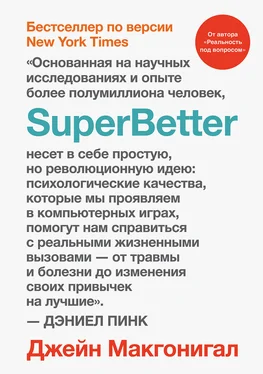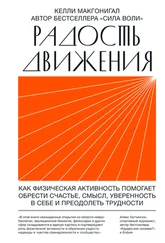Kross et al. Self-Talk as a Regulatory Mechanism.
Barbara E. Abernathy . Who Am I Now?: Helping Trauma Clients Find Meaning, Wisdom, and a Renewed Sense of Self / in Garry R. Walz, Jeanne C. Bleuer, and Richard K. Yep, eds., Compelling Counseling Interventions: Celebrating VISTAS’ Fifth Anniversary. Ann Arbor, MI: Counseling Outfitters, 2008.
Jennifer L. Pals, Dan P. McAdams . The Transformed Self: A Narrative Understanding of Post-Traumatic Growth // Psychological Inquiry. 2004. P. 65–69; Laura A. King et al. Stories of Life Transition: Subjective Well-Being and Ego Development in Parents of Children with Down Syndrome // Journal of Research in Personality. 2000. № 34 (4). P. 509–536; Jack J. Bauer, Dan P. McAdams, Jennifer L. Pals . Narrative Identity and Eudaimonic Well-Being // Journal of Happiness Studies. 2008. № 9 (1). P. 81–104.
Vicki S. Helgeson, Kerry A. Reynolds, Patricia L. Tomich . A Meta-Analytic Review of Benefit Finding and Growth // Journal of Consulting and Clinical Psychology. 2006. № 74 (5). 797 p.
Julienne E. Bower et al. Benefit Finding and Physical Health: Positive Psychological Changes and Enhanced Allostasis // Social and Personality Psychology Compass. 2008. № 2 (1). P. 223–244; Dean G. Cruess et al. Cognitive-Behavioral Stress Management Reduces Serum Cortisol by Enhancing Benefit Finding Among Women Being Treated for Early Stage Breast Cancer // Psychosomatic Medicine. 2000. № 62 (3). P. 304–308; Michael H. Antoni et al. Cognitive-Behavioral Stress Management Intervention Decreases the Prevalence of Depression and Enhances Benefit Finding Among Women Under Treatment for Early-Stage Breast Cancer // Health Psychology. 2001. № 20 (1). 20 p.; Roger C. Katz et al. The Psychosocial Impact of Cancer and Lupus: A Cross Validation Study That Extends the Generality of ‘Benefit-Finding’ in Patients with Chronic Disease // Journal of Behavioral Medicine. 2001. № 24 (6). P. 561–571; Charles S. Carver, Michael H. Antoni . Finding Benefit in Breast Cancer During the Year After Diagnosis Predicts Better Adjustment 5 to 8 Years After Diagnosis // Health Psychology. 2004. № 23 (6). P. 595; Sharon Danoff-Burg, Tracey A. Revenson . Benefit-Finding Among Patients with Rheumatoid Arthritis: Positive Effects on Interpersonal Relationships // Journal of Behavioral Medicine. 2005. № 28 (1). P. 91–103; Eric L. Garland, Susan A. Gaylord, Barbara L. Fredrickson . Positive Reappraisal Mediates the Stress-Reductive Effects of Mindfulness: An Upward Spiral Process // Mindfulness. 2011. № 2 (1). P. 59–67.
Возможно, вы больше знакомы с цитатой «Победа — это еще не все, это единственное, что имеет значение», которую также приписывают Винсу Ломбарди. Однако в последние годы жизни Ломбарди утверждал, что его неправильно поняли. Он настаивал на том, что его настоящие слова: «Главное — стремиться к победе». Любопытно, что записи интервью показывают, что он говорил обе версии цитаты в разные периоды своей жизни. Но спустя годы он все чаще утверждал, что самое главное — «желание победить», «воля к победе» или «стремление к победе». См. Steven J. Overman, “‘Winning Isn’t Everything. It’s the Only Thing’: The Origin, Attributions and Influence of a Famous Football Quote,” Football Studies 2, no. 2 (1999): 77–99.
Нетворкинг — мероприятия для создания и укрепления деловых связей.
Kennon M. Sheldon, Linda Houser-Marko. Self-Concordance, Goal Attainment, and the Pursuit of Happiness: Can There Be an Upward Spiral? // Journal of Personality and Social Psychology. 2001. № 80 (1). 152 p.
Kate C. McLean, Michael W. Pratt . Life’s Little (and Big) Lessons: Identity Statuses and Meaning-Making in the Turning Point Narratives of Emerging Adults // Developmental Psychology. 2006. № 42 (4). 714 p.; Jack J. Bauer, Dan P. McAdams, April R. Sakaeda . Interpreting the Good Life: Growth Memories in the Lives of Mature, Happy People // Journal of Personality and Social Psychology. 2005. № 88 (1). 203 p.; Colette Hillebrand Duggan, Marcel Dijkers . Quality of Life — Peaks and Valleys: A Qualitative Analysis of the Narratives of Persons with Spinal Cord Injuries // Canadian Journal of Rehabilitation. 1999. № 12 (3). P. 179–189; James McIntosh, Neil McKeganey . Addicts’ Narratives of Recovery from Drug Use: Constructing a NonAddict Identity // Social Science and Medicine. 2000. № 50 (10). P. 1501–1510; M.R.E.G.K.P.A. Harney . In the Aftermath of Sexual Abuse: Making and Remaking Meaning in Narratives of Trauma and Recovery // Narrative Inquiry. 2001. № 10 (2). P. 291–311; Clare Woodward, Stephen Joseph . Positive Change Processes and Post Traumatic Growth in People Who Have Experienced Childhood Abuse: Understanding Vehicles of Change // Psychology and Psychotherapy: Theory, Research and Practice. 2003. № 76 (3). P. 267–283; Jack J. Bauer, Dan P. McAdams, Jennifer L. Pals . Narrative Identity and Eudaimonic Well-Being // Journal of Happiness Studies. 2008. № 9 (1). P. 81–104; Sally Maitlis. Who Am I Now? Sensemaking and Identity in Post-traumatic Growth / in Laura Morgan Roberts and Jane E. Dutton, eds., Exploring Positive Identities and Organizations: Building a Theoretical and Research Foundation. New York: Taylor and Francis, 2009.
Eric J. Nestler, William A. Carlezon, Jr . The Mesolimbic Dopamine Reward Circuit in Depression // Biological Psychiatry. 2006. № 59 (12). P. 1151–1159; Moria J. Smoski et al. fMRI of Alterations in Reward Selection, Anticipation, and Feedback in Major Depressive Disorder // Journal of Affective Disorders. 2009. № 118 (1). P. 69–78; Jane H. Powell et al. Motivational Deficits After Brain Injury: Effects of Bromocriptine in 11 Patients // Journal of Neurology, Neurosurgery and Psychiatry. 1996. № 60 (4). P. 416–421.
Kennon M. Sheldon, Andrew J. Elliot. Goal Striving, Need Satisfaction, and Longitudinal Well-Being: The Self-Concordance Model // Journal of Personality and Social Psychology. 1999. № 76 (3). 482 p.
Alisha L. Brosse et al. Exercise and the Treatment of Clinical Depression in Adults // Sports Medicine. 2002. № 32 (12). P. 741–760; Andrea L. Dunn et al. Exercise Treatment for Depression: Efficacy and Dose Response // American Journal of Preventive Medicine. 2005. № 28 (1). P. 1–8; A. Byrne, D. G. Byrne . The Effect of Exercise on Depression, Anxiety and Other Mood States: A Review // Journal of Psychosomatic Research. 1993. № 37 (6). P. 565–574.
Kelli F. Koltyn et al. Perception of Pain Following Aerobic Exercise // Medicine and Science in Sports and Exercise. 1996. № 28 (11). P. 1418–1421; Deborah S. Nichols, Terri M. Glenn . Effects of Aerobic Exercise on Pain Perception, Affect, and Level of Disability in Individuals with Fibromyalgia // Physical Therapy. 1994. № 74 (4). P. 327–332; Kelli F. Koltyn, R. W. Arbogast . Perception of Pain After Resistance Exercise // British Journal of Sports Medicine. 1998. № 32 (1). P. 20–24; Martin D. Hoffman et al. Experimentally Induced Pain Perception Is Acutely Reduced by Aerobic Exercise in People with Chronic Low Back Pain // Journal of Rehabilitation Research and Development. 2005. № 42 (2). P. 183–190; Karen E. Kuphal, Eugene E. Fibuch, Bradley K. Taylor . Extended Swimming Exercise Reduces Inflammatory and Peripheral Neuropathic Pain in Rodents // Journal of Pain. 2007. № 8 (12). P. 989–997.
Читать дальше











